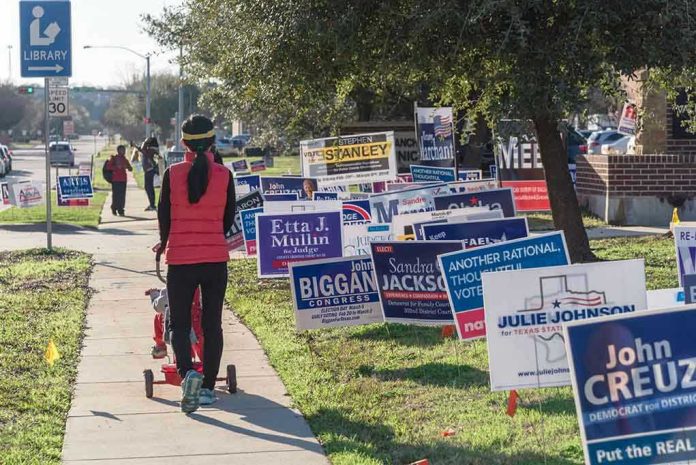
A provocative narrative has emerged, labeling stay-at-home moms as ‘fascist’ for their activism, igniting fierce debates across the nation.
Story Highlights
- The term “fascist” is being used to describe conservative parental groups, particularly led by stay-at-home mothers.
- Moms for Liberty, a conservative group, faces backlash for its educational activism.
- The debate highlights the polarization over educational policies and parental rights.
- Progressive groups oppose the actions of these parental groups, viewing them as threats to minority rights.
Rising Tensions in Educational Activism
In recent years, the political landscape surrounding educational activism has intensified. Conservative parental groups like Moms for Liberty have gained significant attention for their role in school board elections and policy changes. These groups primarily consist of stay-at-home mothers advocating for the removal of certain books and curricula they deem inappropriate. However, this activism has sparked outrage among progressive circles, leading to the controversial labeling of these mothers as “fascist” by some critics.
Now Even Stay-At-Home Moms are Fascist | The American Spectator | USA News and Politics
— Kenneth Currie (@AGWDenier2) September 25, 2025
The roots of this conflict stretch back to the COVID-19 pandemic, which saw an increase in parental involvement in school policy. As debates over mask mandates, critical race theory, and LGBTQ+ inclusion became more prominent, conservative groups pushed for significant changes in educational content. This movement, framed as one of parental rights, has been met with resistance from progressive activists who argue that such actions undermine minority rights and stifle free expression.
Polarization and Public Perception
The term “fascist” has become a flashpoint in this cultural conflict, highlighting the deep divisions in American society. Critics of the Moms for Liberty and similar groups argue that their tactics resemble authoritarianism, while supporters defend their actions as a necessary stand for parental control and traditional values. The media’s role in amplifying these narratives has only fueled the polarization, with each side accusing the other of extremism and overreach.
Protests and counter-protests have become common occurrences at school board meetings and parental rights conferences. These events often attract national media attention, further entrenching the divide between conservative and progressive communities. As the 2024 election cycle approaches, education policy is expected to remain a central issue, with both sides mobilizing to influence the outcome.
The Broader Implications of the Debate
The ongoing debate over parental rights and educational policy has far-reaching implications for American society. In the short term, communities are experiencing increased polarization, with school board operations often disrupted by activism from both sides. Long-term consequences could include shifts in education policy, a decline in trust in public institutions, and the normalization of extreme rhetoric in political discourse.
The impact of this debate extends beyond education, touching on broader questions about democracy, rights, and civic engagement. As conservative groups continue to gain influence through local elections, progressive organizations are leveraging protests and media campaigns to counteract their efforts. The stakes are high, and the outcome of this cultural clash will likely shape the future of American education and beyond.







